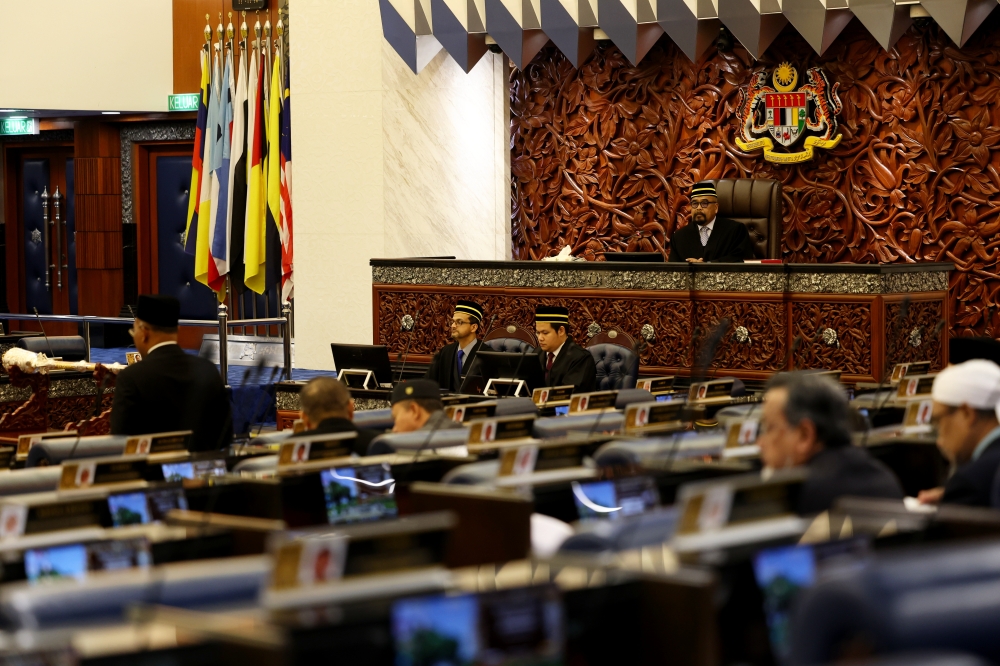MARCH 25 — In “Oppose not for the sake of opposing”, I argued that there need not be a ruckus in the Dewan Rakyat over the granting of power to the prime minister under the Jurisdictional Immunities of Foreign States Bill 2023.
The Bill was passed after the Deputy Speaker Alice Lau Kiong Yieng put it to the House to vote at the end of the debate at its second reading. The following is recorded by Hansard dated March 19, 2024:
Timbalan Yang di-Pertua [Puan Alice Lau Kiong Yieng]: Ahli-ahli Yang Berhormat, sekarang saya kemukakan masalah kepada Majlis bagi diputuskan. Masalahnya ialah bahawa rang undang-undang ini dibacakan kali yang kedua sekarang.
[Masalah dikemukakan bagi diputuskan; dan disetujukan]
Immediately Datuk Seri Dr Ronald Kiandee (PN – Beluran] stood up and protested. He said:
Yang Berhormat Speaker, this is unfair. Saya nak sebut Peraturan Mesyuarat 54(1) dan Peraturan Mesyuarat 54(2).
What is Standing Order (SO) 54(1) and (2)?
54. Committal of Bills.
(1) A Bill may be committed to a Select Committee before its second reading.
(2) When a Bill has been read a second time it shall stand committed to a Committee of the whole House unless the House on motion commits it to a Select Committee. Such motion shall not require notice, must be made immediately after the Bill is read a second time, and may be proposed by any member; the question thereon shall be put forthwith and shall be decided without amendments or debate.
SO 54(2) is relevant here. It allows for a motion by any MP to commit the Bill to a Select Committee. The motion does not require notice but must be made immediately after the Bill is read a second time. The question raised in the motion must be put forthwith to, and decided by, the House without amendments or debate.
It is because of SO 54(2) that the parliamentary practice is for the Speaker — or Deputy Speaker who is in the Chair — to ask or call for a motion.
The Speaker would say: Ada Usul?
If there is no motion to commit a Bill to a Select Committee after its second reading, the Bill “shall stand committed to a Committee of the whole House”.
Kiandee was understandably animated in his protestations that he was denied his right under SO 54(2) to put forth a motion to commit the Bill to a Select Committee. It led to him saying to Deputy Speaker Alice Lau that she had “bulldozed the process”.
The commotion could be avoided had the Deputy Speaker called for a motion, to be put to the House immediately and decided upon.
Law-making process should not be bulldozed.
It is hoped that the process of the Bill on proposed amendments to the Federal Constitution concerning citizenship law, which will finally be tabled in Parliament for its first reading on Monday (March 25) will not be bulldozed.
The Bill, which is called the Constitutional (Amendment) Bill 2024, is listed as item No. 1 of Government Bills for First Reading.
After weeks of public criticism, it is hoped that the government will resort to SO 54(1) to commit the Bill to a Select Committee after its first reading and before its second reading.
The law cannot be rushed and rashly imposed, particularly where it adversely affects particular groups.

* This is the personal opinion of the writer and does not necessarily represent the views of Malay Mail.





















